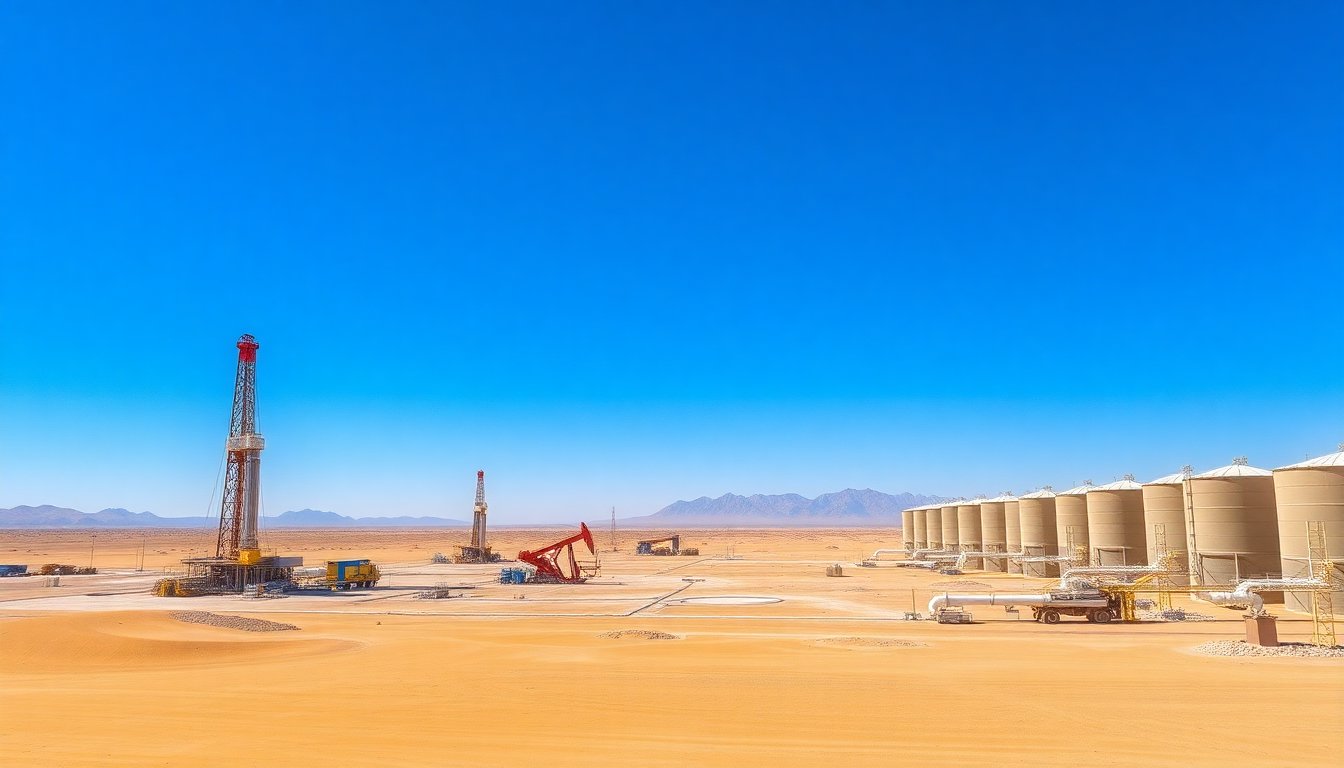Table of Contents
The landscape of global oil production is undergoing significant changes as Lukoil, a major Russian oil company, faces substantial challenges due to U.S. sanctions. Recently, Lukoil announced force majeure at its critical West Qurna-2 oil field in Iraq.
This site is essential, as it accounts for a large portion of the country’s oil output.
West Qurna-2, located northwest of Basra, ranks among the world’s largest oilfields and plays a vital role in Lukoil’s international operations. The field produces approximately 480,000 barrels of oil daily, representing about 9% of Iraq’s total production.
However, the sanctions have resulted in the complete suspension of cash and crude payments from the Iraqi government to Lukoil, severely affecting its operational capabilities.
The implications of sanctions on Lukoil’s operations
Lukoil has formally invoked force majeure conditions in a communication to the Iraqi oil authorities, which legally protects the company from penalties for failing to meet its contractual obligations.
This action follows the cancellation of several planned shipments of crude oil by Iraq’s state oil marketing company, SOMO, due to sanctions. As a result, approximately four million barrels scheduled for November have been canceled.
Current state of Lukoil’s operations in Iraq
The impact of the sanctions is significant. Lukoil has terminated contracts with foreign personnel at the West Qurna-2 site, leaving only Russian and Iraqi staff to manage operations. This situation raises concerns about the future of the project. An Iraqi official has warned that if a resolution is not reached within six months, Lukoil may have to stop production entirely and withdraw from the project.
Broader impacts on the energy sector
As Lukoil faces significant challenges, several European countries are actively seeking to secure energy assets ahead of the upcoming sanctions deadline on November 21. For example, Bulgaria is reportedly planning to seize Lukoil’s Burgas oil refinery, highlighting a wider trend of nations striving to bolster their energy resources amid rising geopolitical tensions.
The potential fallout for Iraq’s oil production
Iraq’s dependency on Lukoil’s production raises concerns regarding the stability of its oil sector. The cancellation of shipments and the possibility of Lukoil’s withdrawal from the project could have severe repercussions for the country, especially as it navigates the intricate dynamics of international relations within the energy market.
Implications of Lukoil’s force majeure declaration
This situation highlights the precarious nature of global energy dependencies and the extensive ramifications of sanctions. Lukoil’s attempts to navigate these turbulent waters place the future of the West Qurna-2 oilfield in jeopardy, serving as a microcosm of the broader challenges confronting nations reliant on oil production amid shifting geopolitical landscapes.
Lukoil’s declaration of force majeure at its West Qurna-2 site emphasizes the vulnerabilities within the global oil market, especially under stringent sanctions. As the company addresses these challenges, the implications for Iraq’s oil output and broader energy security in Europe will continue to evolve.





